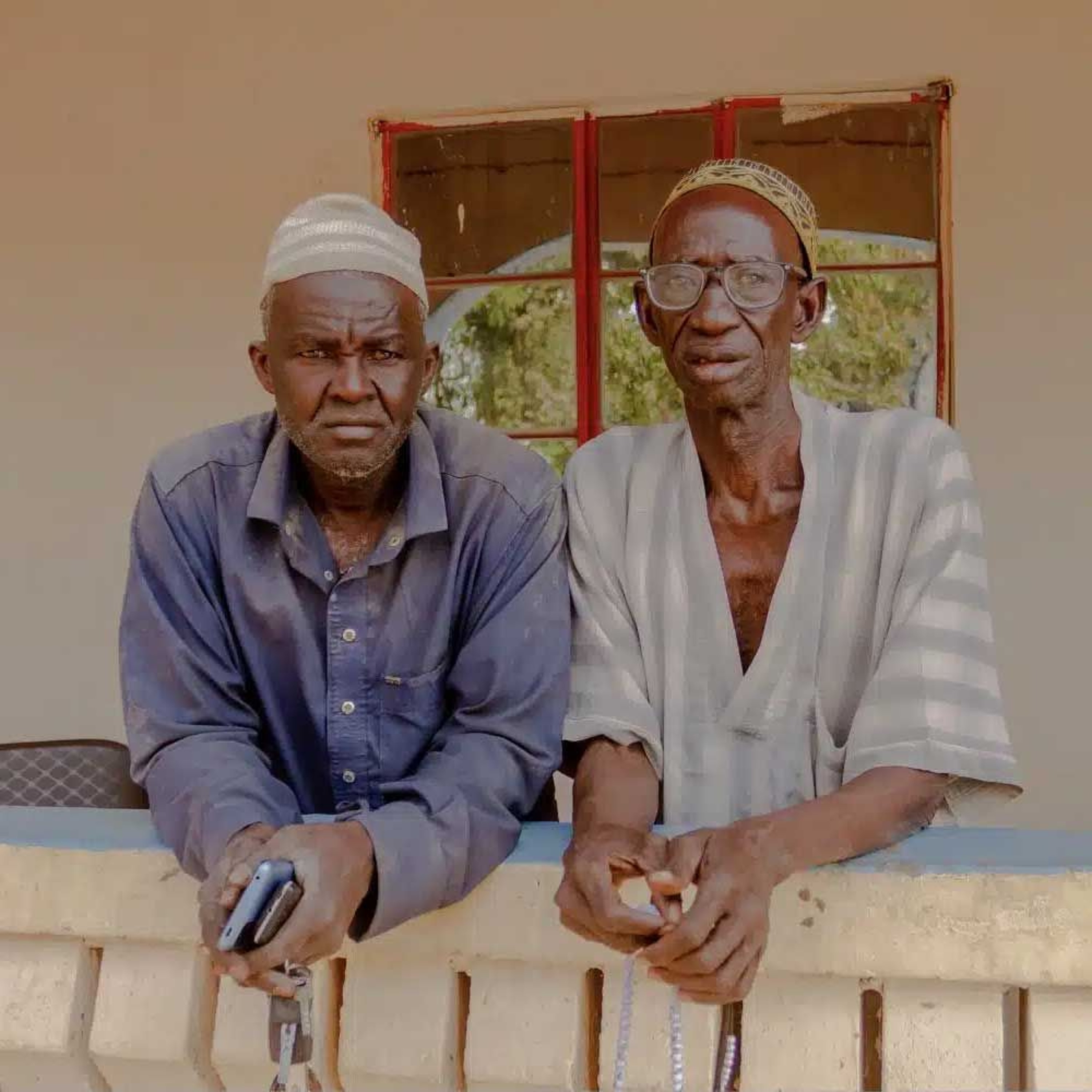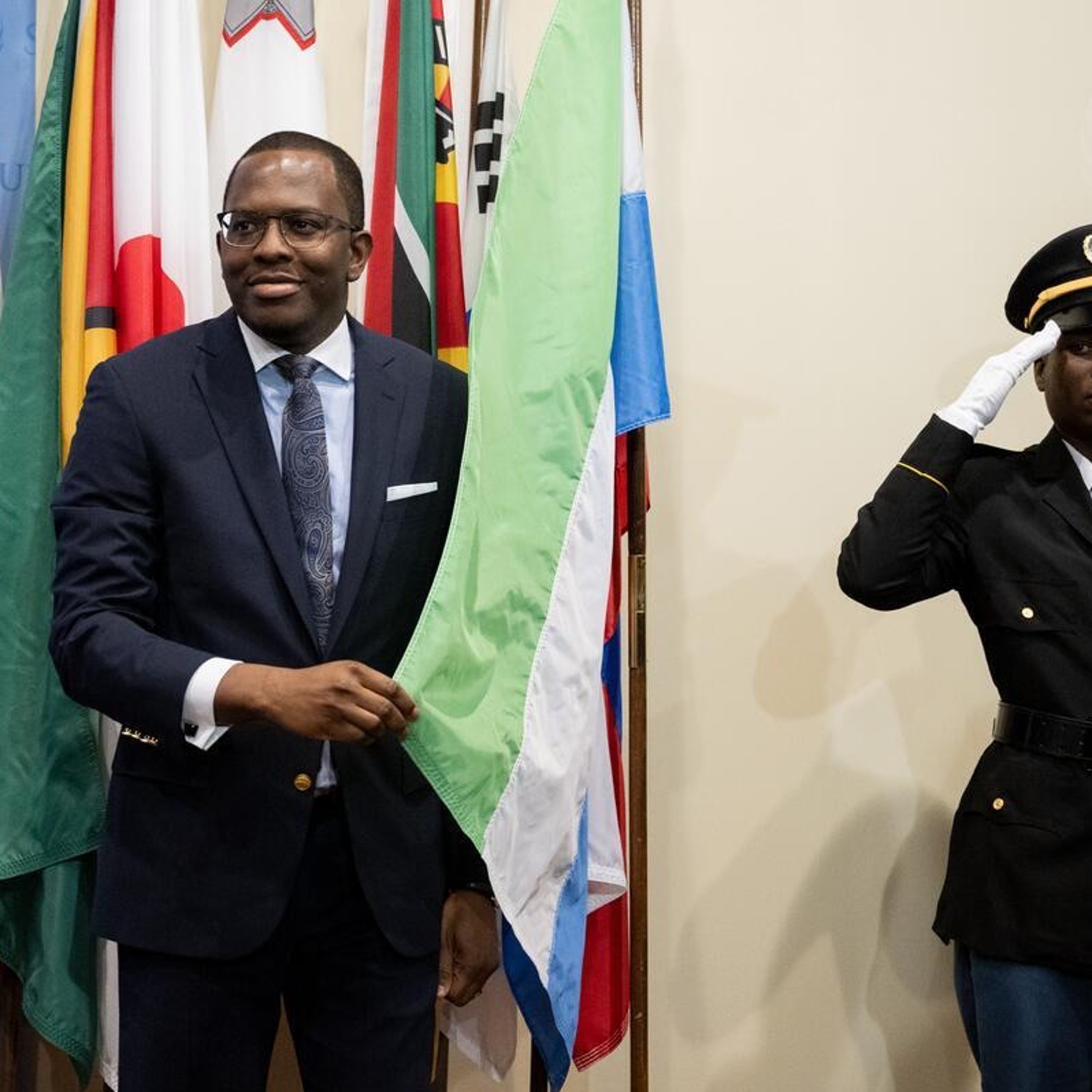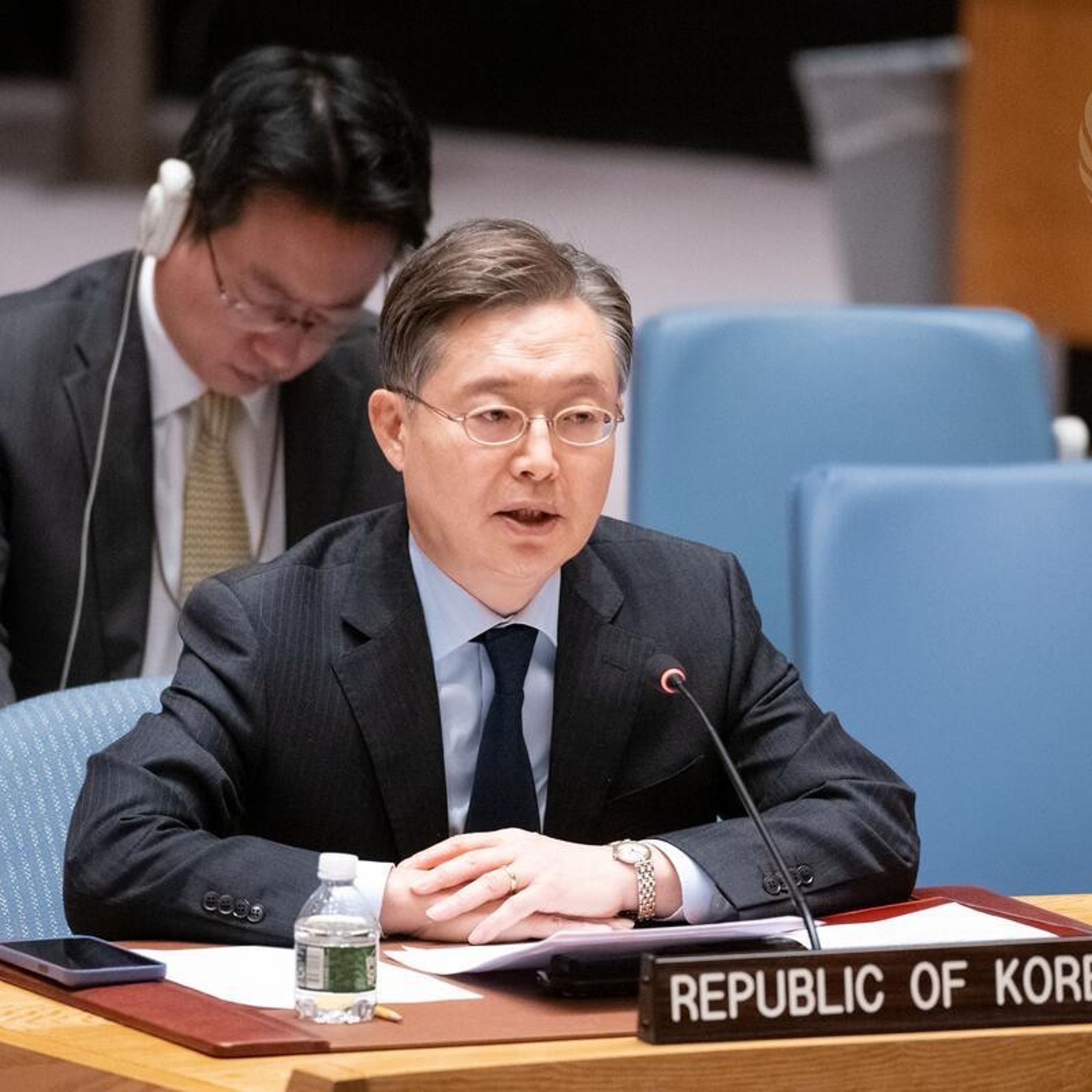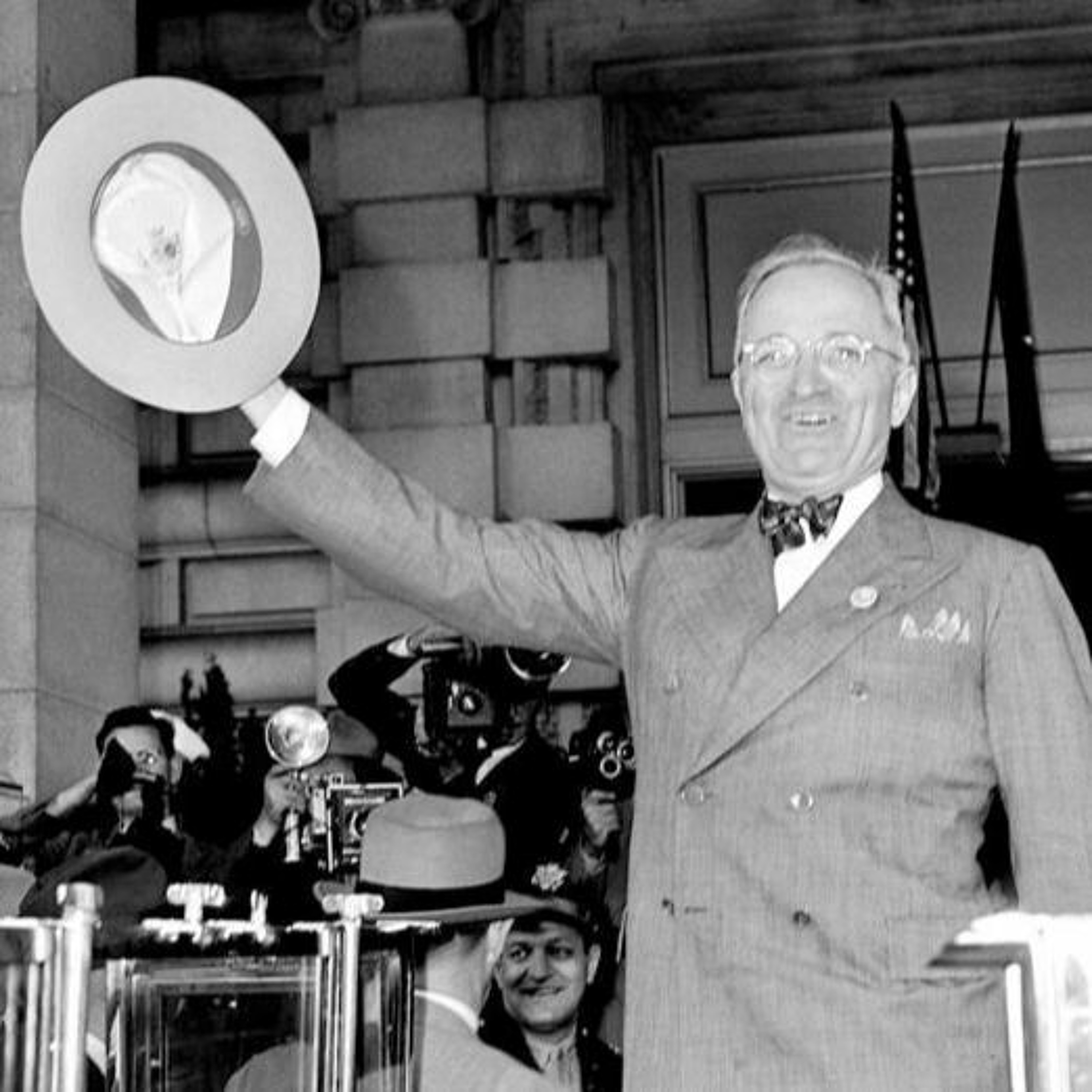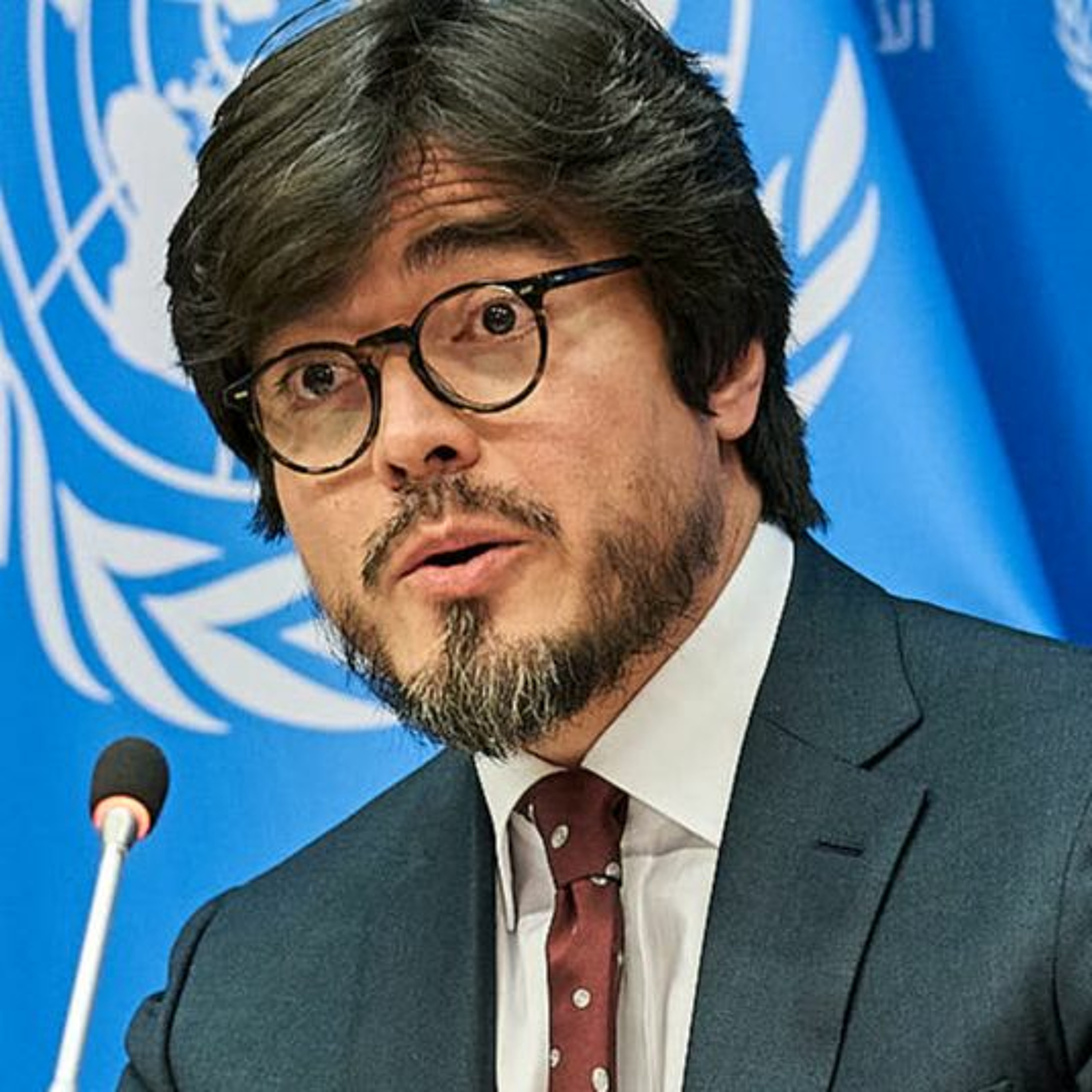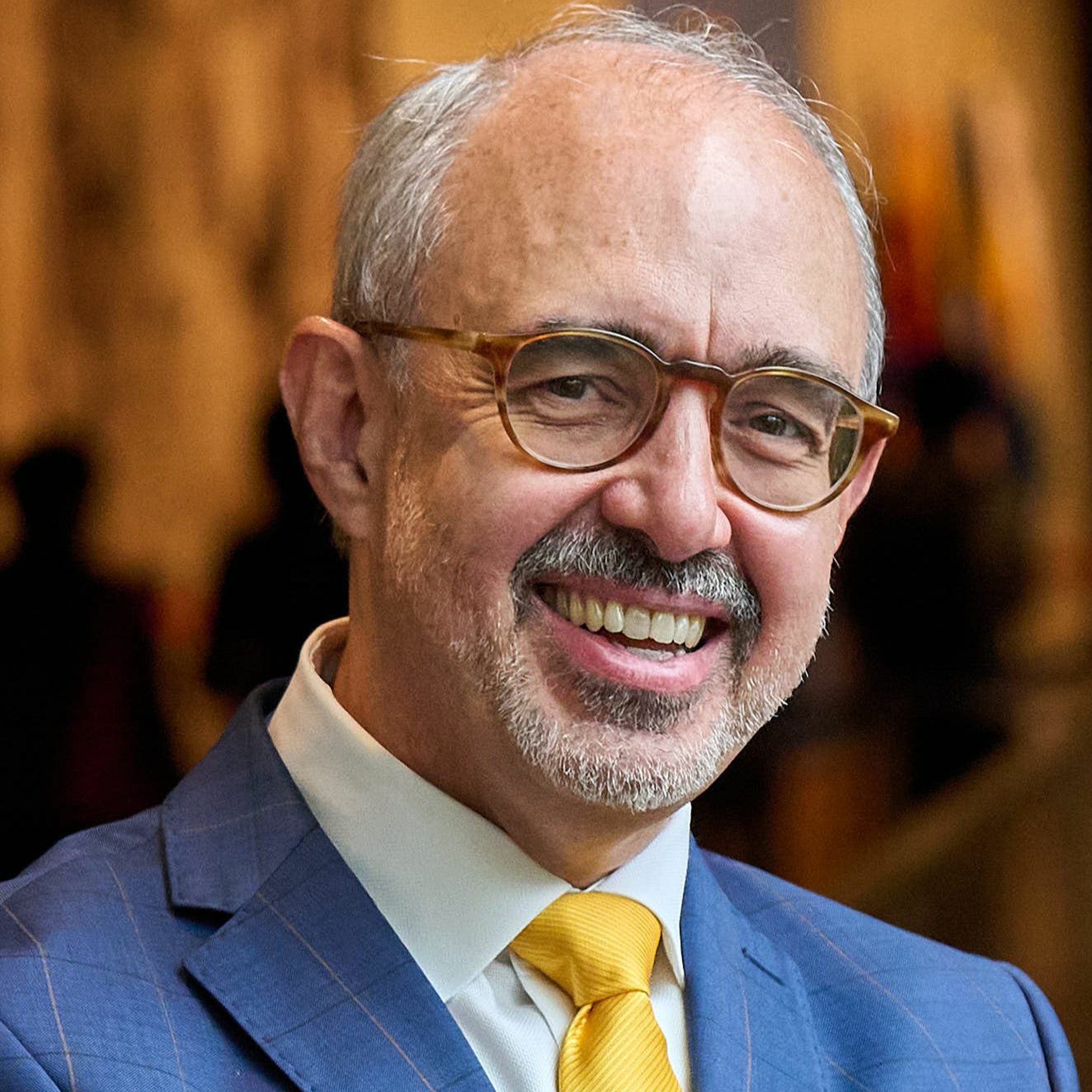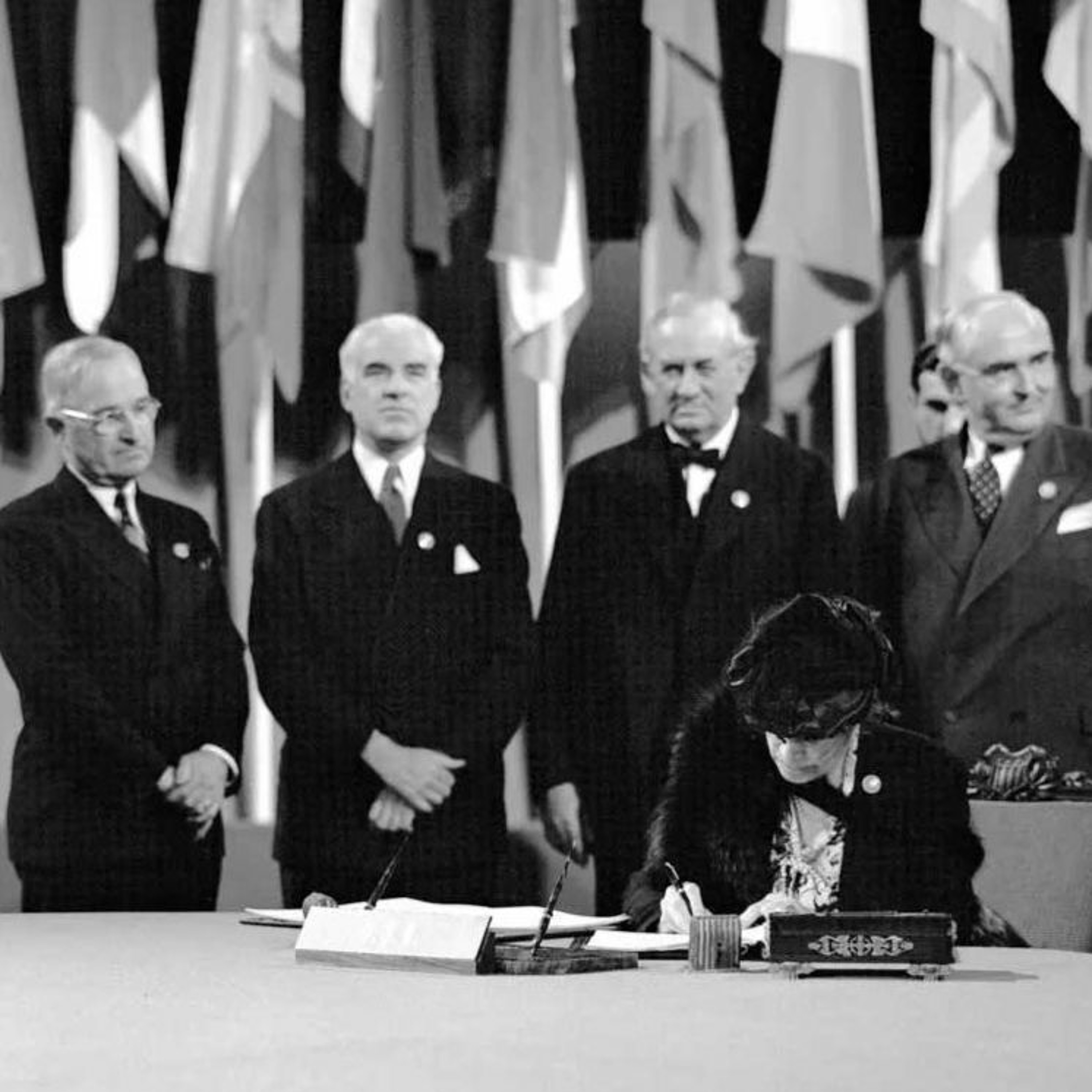Discover PassBlue UN Podcasts
PassBlue UN Podcasts

PassBlue UN Podcasts
Author: PassBlue UN Podcasts
Subscribed: 114Played: 2,626Subscribe
Share
© All rights reserved
Description
PassBlue is an independent, women-led digital publication offering in-depth journalism on the US-UN relationship and its effects on women’s issues, human rights, peacekeeping and other urgent global matters, as reported from our base in the UN press corps. Founded in 2011, PassBlue is not tied financially or otherwise to the UN.
88 Episodes
Reverse
Yahya Jammeh, Gambia’s former leader, ruled the tiny West African country with an iron fist for 22 years after seizing power in a 1994 military coup. His regime was marked by widespread human rights abuses, including enforced disappearances, torture and extrajudicial killings. Despite being voted out in 2016 and soon exiled to Equatorial Guinea after refusing to accept the election results, his legacy continues to haunt Gambia as victims and their families wait for elusive justice and reparations.
This audio documentary, "Portrait of Jammeh," sheds light on the long-lasting scars left by his dictatorship. The documentary takes listeners to Kanilai, Jammeh’s hometown, where, despite his brutal legacy, many people still revere him. Survivors and families of victims recount chilling experiences, including mass executions carried out by Jammeh’s notorious death squad, the Junglers.
Samuel Zbogar, ambassador of Slovenia to the UN, leads the rotating presidency of the Security Council this month. In an interview, he tells PassBlue that his country will use its signature debate, on Sept. 25, to ask Council members to reflect on how their countries can work more for peace rather than war. A daunting challenge, he admits.
The country is back in the Council for the first time since 1999.
Tweet at us @pass_blue
GC tv link: www.globalconnectionstelevision.com/
Dr. Michael Imran Kanu, Sierra Leone's envoy to the UN, says his country's presidency of the Security Council this August will focus on Council reform and making the case for a permanent seat for the African continent.
Tweet at us @pass_blue
GC tv link: www.globalconnectionstelevision.com/
As UN Security Council rotating president for July, Russian Ambassador Vassily Nebenzia says that the West is using the "Kyiv regime" as "puppets" to fight the war in Ukraine and that there will be "certain political consequences" for doing so.
Nebenzia was speaking to the media on July 1 as he detailed his country's agenda in the Council for the next four weeks. Besides the topic of Ukraine, he fielded questions on the budding closeness between North Korea and Russia, including the gift of a luxury car.
Tweet at us @pass_blue
GC tv link: www.globalconnectionstelevision.com/
Joonkook Hwang, the ambassador of South Korea to the UN, says his country will highlight the threats of cyberspace to global peace and security. This is a new topic for the Security Council agenda, so why does it matter to the East Asian nation?
Find out in this month's episode of UNSCripted.
Tweet at us @pass_blue
GC tv link: www.globalconnectionstelevision.com/
Welcome to a special episode of PassBlue podcast series UNSCripted. I’m Jessica Le Masurier, and I’m joined by Hala Rharrit, the Arabic language spokesperson for the Mideast-North Africa region for the United States State Department who recently resigned in protest over US policy on the war in Gaza. (The text part of the interview has been edited for clarity.)
Mozambique's permanent representative to the Security Council, Pedro Comissário, says that vetoes, divergent priorities and other imperfections can severely limit the productive work of the UN's crucial peacemaking body. On this episode of UNScripted, we find out what Comissário plans to do as rotating president in May, despite these challenges, such as reinforcing international law on protecting civilians.
Tweet at us @pass_blue
GC tv link: www.globalconnectionstelevision.com/
Vanessa Frazier, Malta’s envoy to the UN, explains why the new Ramadan ceasefire isn't holding in Gaza and says that her country is counting on the ICC to hurry up its inquiry into whether war crimes are being carried out in the enclave.
GC tv link: www.globalconnectionstelevision.com/
Japan's dual focus for its UN Security Council presidency – preventing conflicts as well as nuclear disarmament – align with its foreign policy and history of nuclear disasters but as it leads the Council for this month, Ambassador Yamazaki says the Security Council is struggling with its main job of building peace and preventing violent disputes.
Seton Hull link: www.shu.edu/diplomacy/visiting.html
GC tv link: www.globalconnectionstelevision.com/
The UN CHARTER: A Question of Faith
“The substance of things hoped for, the evidence of things not seen.”
SAN FRANCISCO -- Our third and final episode of the podcast series “Act of Creation” is ready for your ears. It’s a fitting end to a great journey. Episode 1 looks at the years leading up to the famous San Francisco Conference of 1945, when the Charter was signed and the United Nations was born; the episode then moves up to the Conference’s opening day on April 24. Episode 2 dives into the Conference itself, showing the intense diplomatic maneuvering as well as the ambitious intentions that were needed to turn the Charter into a reality. Now, in Episode 3, we start on the day the Charter was signed and celebrated, June 26, 1945, and then take listeners decade by decade into the Charter’s future.
In this episode, Stephen Schlesinger, the American historian and author of the book “Act of Creation: The Founding of the United Nations,” does a stellar job of telling that story, spinning through the decades. We see more examples of international drama and exceptional leadership as well as their opposite. You’ll hear the ideas and voices of such figures as Eleanor Roosevelt, Kofi Annan, Harry Truman and Dag Hammarskjold. They weave and bob in the large, deep mental space created by Schlesinger’s brilliant point of view, both wickedly intelligent and often surprisingly poignant. Perhaps most movingly for me, and at first unexpected, is hearing the aural unfolding of humanity’s profoundest values.
The story of the founding of the UN, besides being riveting, entertaining and filled with vivid personalities, parades these values at the only moment in time –arguably-- where the entire world was paying attention: the end of World War II. These values and ideals may seem naïve to some listeners now, but when you hear them echoing loudly from the past, the words by St. Paul in our title may seem stubbornly wise and solidly reasonable. “Faith is the substance of things hoped for, the evidence of things not seen.” Our hope is that this final episode provides resonance to these words and demonstrates the persistent power of ideals not yet realized: a clarion call for all of us to get to work.
Many thanks to Schlesinger for sharing these tales with such good will and tremendous smarts, and to Dulcie Leimbach, a founder, with Barbara Crossette, of PassBlue and the executive producer of this series, for her insights, encouragement and patience! Two truth warriors fighting the fight every day, it’s been my honor and great pleasure to have been able to work alongside them for these last couple years.
Thanks to all for listening. We look forward to your feedback: info@passblue.com.
DAN BECKER, producer and composer
Guyana may not not want a permanent seat in the UN Security Council but it definitely wants a ceasefire in Gaza "as soon as possible." As rotating president for February, the country's ambassador to the UN, Carolyn Rodrigues-Birkett, tells PassBlue that another top priority for the month is impressing on the world how climate change affects food security and, ultimately, global peace. She also touches on Guyana's territorial disputes with Venezuela.
Seton Hull link: www.shu.edu/diplomacy/visiting.html
GC tv link: www.globalconnectionstelevision.com/
France, a permanent member of the Security Council, is president of the body in January. Ambassador Nicolas de de Rivière says his country will headline Gaza this month, where the number of civilian casualties incurred by Israel's "broad and massive military operation" is "way way too high."
Tweet at us @pass_blue
Seton Hull link: www.shu.edu/diplomacy/visiting.html
GC tv link: www.globalconnectionstelevision.com/
As Ecuador’ assumes the leadership of the United Nations Security Council this month, the country wants to focus on the broader peace and security issues in the Mideast rather than the Israel-Hamas war, even as it devastates civilians in the Gaza strip.
Listen to our podcast to find out what it hopes to do about transnational organized crimes in Latin America and UN peacekeeping in the Central Africa region.
Tweet at us @pass_blue
Seton Hull link: www.shu.edu/diplomacy/visiting.html
GC tv link: www.globalconnectionstelevision.com/
In this episode, we meet a family who fled Xinjiang Province, or what they prefer to call East Turkestan, to the US and are now teaching a new generation in the diaspora about Uyghur language and culture. We also meet a New York City restaurateur who is keeping Uyghur cuisine alive.
Tweet at us @pass_blue
Seton Hull link: https://www.shu.edu/diplomacy/visiting.html
GC tv link: https://www.globalconnectionstelevision.com/
Brazil recently won a sixth term in the Human Rights Council. Before the election, we spoke to the country’s deputy permanent representative to the UN, Norberto Moretti, on the country’s candidacy. We also talked about the reversal of deforestation in the Amazon and the lack of debate on migration in the UN Security Council. With context provided by Prof. Gustavo Macedo at Ibmec in Sao Paulo.
Seton Hall: https://www.shu.edu/
Global Connection Television: https://www.globalconnectionstelevision.com/
If you want to join the European Union, make sure you are at peace with Athens. But Ferit Hoxha, Albania’s envoy to the UN and rotating president of the UN Security Council for September, is unperturbed about possible obstacles Greece may put in Albania's way, regardless of certain disputes. PassBlue interviewed Hoxha and Engjellushe Morina, a senior policy fellow at the European Council on Foreign Relations, for this month's episode of UN-Scripted. We discuss how Russia's invasion of Ukraine has helped Albania stand out in the Security Council in its two-year term as well as the country's push to join the EU. Hoxha also declares what he can't wait to do in December, when his country's stint is up in the Council. Tell us what you think of this episode @Pass_Blue
Seton Hall Advert: https://www.shu.edu/
Global Connection Television: https://www.globalconnectionstelevision.com/
As the US takes over the Security Council, famine and human rights are the banner themes for August. We chat with foreign affairs analyst Jeffrey Laurenti about the Black Sea Grain deal, perennial Israel and Palestine fracas and Afghanistan’s foreign reserves. Laurenti, who is American, says Israel’s extreme right-wing government is alienating its Jewish support in the US. Would that be enough to push the Biden camp to be firm with its longtime ally in the Mideast?
Tweet us at Pass_Blue to share your views.
Seton Hall Link: https://www.shu.edu/
GC Tv link: https://www.globalconnectionstelevision.com/
Our latest episode of “Act of Creation” takes listeners deep into conversation with Stephen Schlesinger, author of the book of the same name, which celebrates its 20th anniversary this September and chronicles the birth of the United Nations through the signing of the UN Charter. That is arguably the moment when the UN was born, at the end of a two-month conclave that began on April 25, 1945, most famously referred to as the San Francisco Conference.
The second episode of our three-part series moves from the human flavor of the first episode, where we put the conference into historical context, setting the atmosphere, the quality of the air that was being breathed in at the time. World War II was still underway, Hiroshima was only a few months away and United States President Franklin Delano Roosevelt was by far the most central figure to the creation of the UN than most listeners realized.
With UK’s presidency of the Security Council underway, PassBlue used its interview with Ambassador James Kariuki, the country’s deputy permanent representative, to ask about one of the most controversial pieces of UK foreign policy – a bill that could allow British government ministers to ignore injunctions from the European Court of Human Rights to suspend deportation of illegal migrants. We also heard directly from the ambassador why the UK and the United States blocked the airing of Russia’s Arria formula meeting in April.
The meetings are an informal way for Council members to brief one another and the world via UN WebTV. China and Russia have also blocked the broadcasting of these informal meetings.
We would like to know from you, the listener, if Council members should be allowed to block the broadcast of any Arria-style meeting. Please tweet us @pass_blue
We were also joined by Evelyn Leopold, a veteran journalist now retired from Reuters who has reported in Africa and been stationed at the UN for two decades. She discussed the peace stalemate in Sudan.
Finally, we continued our search for culpability over the Council’s inability to reinstate the transitional government of Sudan or sanction the fighting generals after the coup of 2022.
Seton Hull link: https://www.shu.edu/diplomacy/visiting.html
GC tv link: https://www.globalconnectionstelevision.com/
In March, the Taliban opened a consul in the UAE. There are two possible results proffered by Dr. Mira Al Hussein, a Mideast expert, on the move: the militants gain international legitimacy or the US could be tempted to bolster the Taliban to attack Iran. Both parties have clashed over water rights this year. On this episode of UN-Scripted, we also reflect on how well the UAE has been at building economic relationships globally, as it leaves its military interventionist policy of the post-Arab Spring days behind.
Global Connections Television
https://www.globalconnectionstelevision.com/
PassBlue on Twitter
@pass_blue


